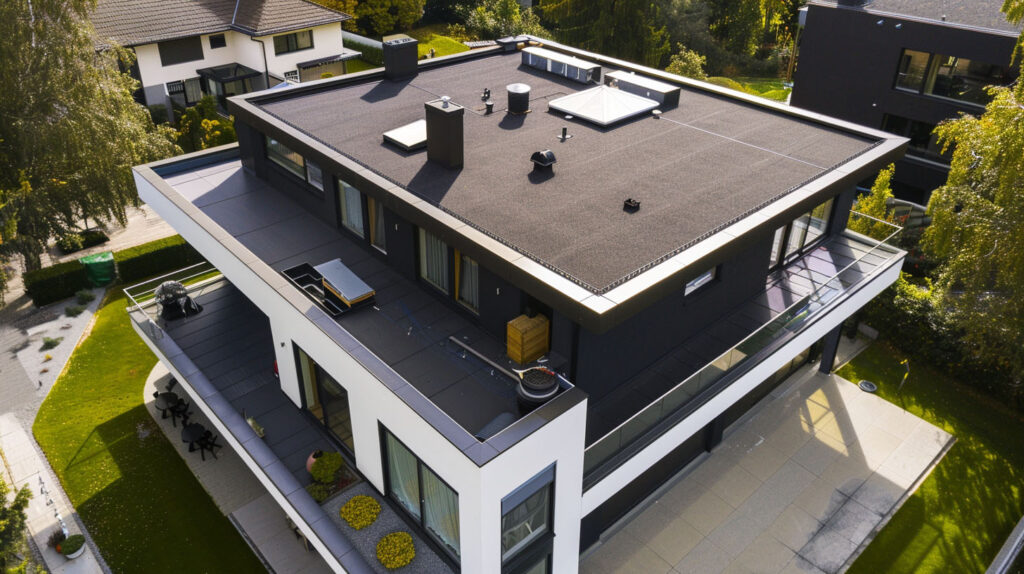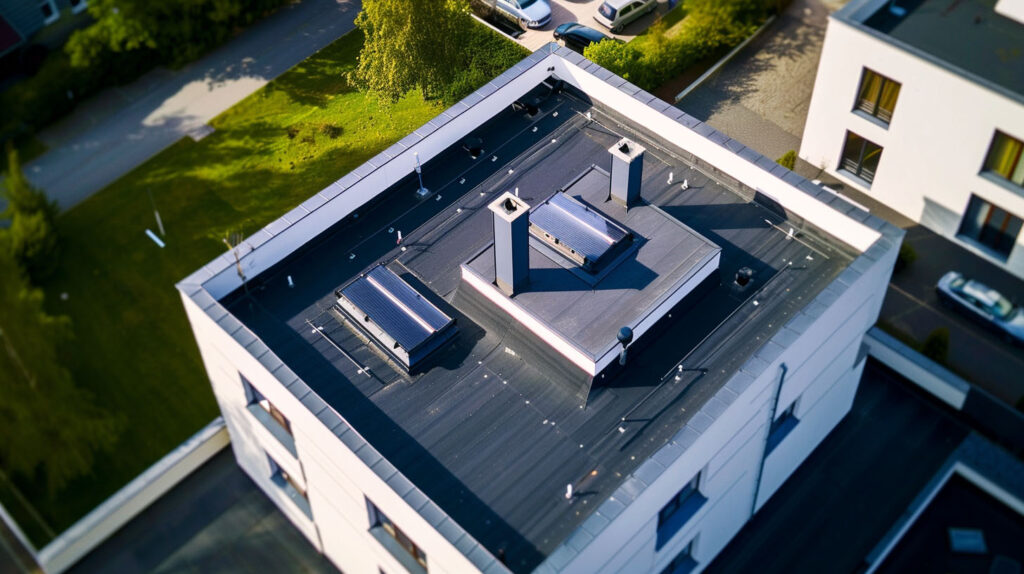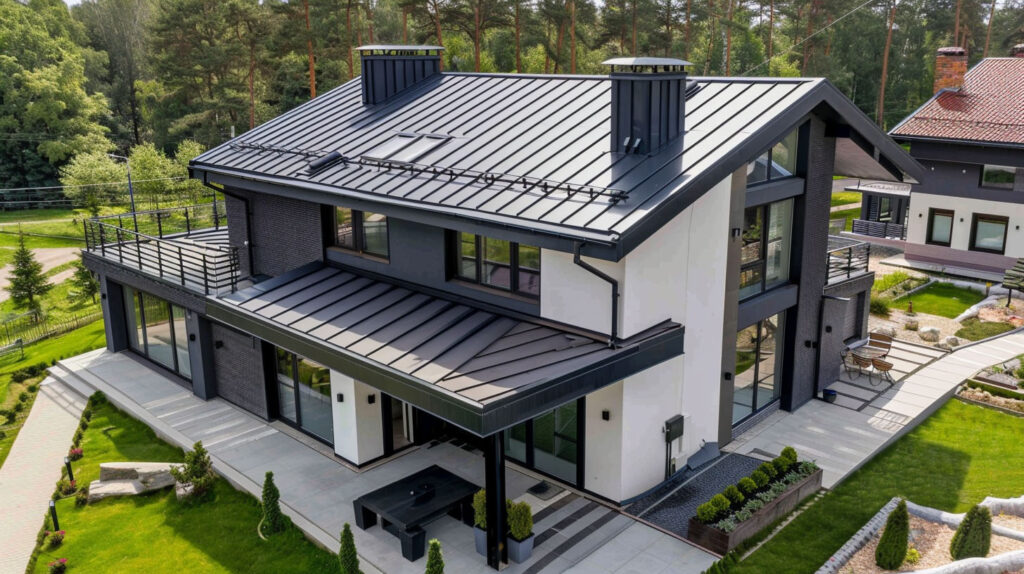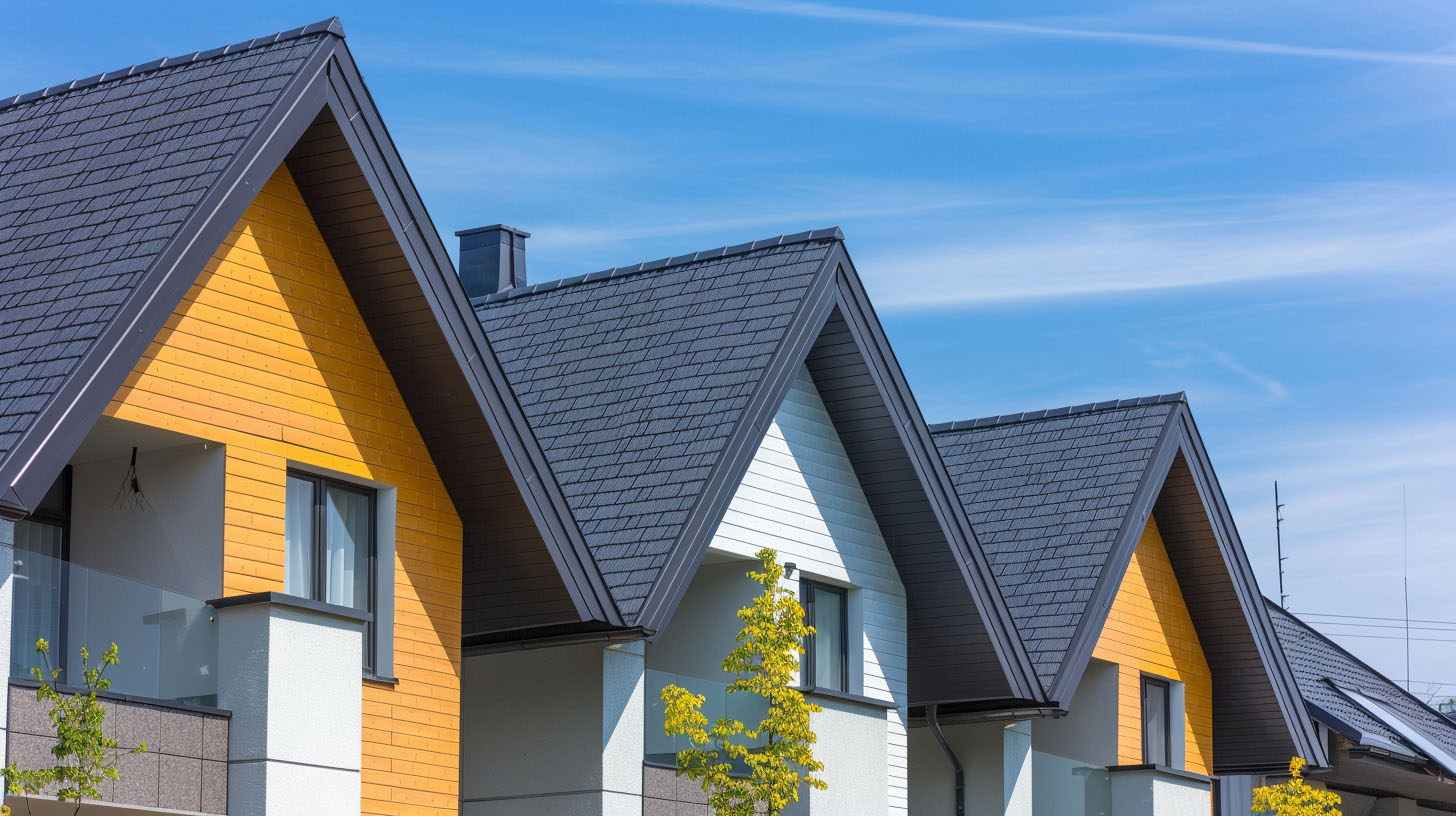Flat Roofs vs. Pitched Roofs: Which Is Better for Your Home?
Selecting the ideal type of roof for your residential home is one of the most critical decisions you’ll make for your property. A impacts not only the visual appeal of your home but also its functionality, durability, and energy efficiency. While flat roofs and pitched roofs each provide unique advantages, determining the right depends on your specific needs and style preferences. Specialist Roofing & Repair is here to ensure you make an informed decision tailored to your home’s requirements in Long Beach, CA.
Understanding Flat Roofs
Flat roofs are a prominent feature on commercial buildings but are increasingly being used in contemporary residential designs. Unlike pitched roofs, have a slight slope to enable drainage and are constructed with materials such as PVC membranes, EPDM, or modified asphalt. This roofing style delivers a modern aesthetic and cost-saving benefits for homeowners seeking replacement solutions.
However, flat roofs require specific maintenance due to their unique structure. While affordable to install, often demand frequent inspections and regular upkeep to ensure their longevity and functionality.
Advantages of Flat Roofs for Homes
Versatile and practical, flat provide numerous benefits for Long Beach homeowners. Their lower upfront cost makes an attractive option, especially for residential homes. A variety of materials can be used for flat installation, including EPDM and PVC, enhancing durability and performance. Routine inspections and maintenance can mitigate risks of leaks and structural damage. Additionally, flat roofs offer the perfect foundation for rooftop decks or solar panels, maximizing space while potentially lowering energy bills and contributing to the home’s style.

Common Challenges and Maintenance Needs of Flat Roofs
Flat roofs present unique challenges that require vigilant maintenance to ensure their longevity. A key concern is the potential for pooling, which can lead to leaks and structural damage if not addressed. Regular inspections are essential to identify vulnerabilities, such as wear in the membrane or cracking, that could compromise the waterproofing. Additionally, while the cost of a flat roof can be lower upfront, homeowners must consider the ongoing maintenance and possible need for repairs, ensuring their investment remains sound.
Exploring Pitched Roofs
The pitched roof is a classic and enduring choice in residential architecture. Its steep sloped design ensures efficient water drainage, preventing pooling or structural damage. Typically constructed with durable materials such as asphalt shingles or clay tiles, pitched roofs are a testament to longevity and timeless appeal.
Beyond their functional benefits, pitched roofs elevate a home’s curb appeal, making a popular option. Require fewer maintenance efforts, offering homeowners a balance of style and practicality for long-lasting results.
Benefits of Pitched Roofs
Several advantages position pitched roofs as a compelling choice for homes in Coastal California. Their sloped design effectively facilitates water drainage, reducing the risk of pooling or leaks during heavy rains. This not only enhances longevity but also minimizes maintenance needs. Furthermore, pitched roofs provide a classic look that complements various architectural styles while allowing for better insulation and energy efficiency. The inclusion of features like solar panels and additional attic space adds to their practicality, making a solid option for homeowners.
Drawbacks and Unique Considerations for Pitched Roofs
Pitched roofs, while aesthetically pleasing and durable, come with certain drawbacks. Higher installation costs can be a significant consideration for homeowners. The complexity of the design often necessitates expert craftsmanship, which may increase expenses. Additionally, maintenance can be more involved due to the intricacies of gutters and potential for debris accumulation. Without proper ventilation, there’s a risk of structural damage from heat and moisture buildup, making it essential to factor in regular inspections and upkeep for longevity.

Key Factors to Consider When Choosing Your Roof Type
At Specialist Roofing & Repair, we specialise in helping Long Beach homeowners select the right roof that suits their style and functionality needs. With our expert roofing team, we ensure your decision aligns with budget and energy efficiency goals for lasting comfort and peace of mind.
Weather, Climate, and Energy Efficiency
Consideration of local weather and climate is crucial when selecting a roof type for your home. Flat roofs, with their slight slope, require effective drainage solutions to prevent pooling and minimize leaks, particularly in areas with heavy rainfall. Conversely, pitched roofs are designed to handle water runoff and can offer better insulation in fluctuating temperatures. Choosing the right roofing material can enhance energy efficiency, potentially lowering energy bills and increasing the lifespan of your roof, making these factors essential for homeowners in coastal California.
Get in Touch
Choosing between flat roofs and pitched involves considering various factors to align with your home’s style and functionality. Flat roofs can offer a modern aesthetic and opportunities for extra space, but may require regular maintenance due to potential pooling and leaks. Conversely, pitched roofs, with their classic look, enhance durability and drainage but come with higher upfront costs and may not maximize energy efficiency as effectively. As an Owens Corning Platinum Preferred Contractor and a Polyglass Quantum Contractor with a BBB A+ Rating, we can help you make an informed decision that hinges on your unique needs, budget, and architectural preferences.

Frequently Asked Questions
What is the best roof to put on your home?
The right choice varies based on your budget, residential home style, and climate conditions. Partnering with a reliable roofing company ensures your new roof meets your demands for longevity and energy efficiency.
What is the major disadvantage of using a flat roof?
The main drawback is the risk of leaks and pooling due to minimal slope. Flat roofs also have a shorter lifespan compared to pitched roofs, requiring regular maintenance to counter structural damage and ensure reliability.
Read our blog: Energy-Efficient Roofing Options for Warmer Climates



